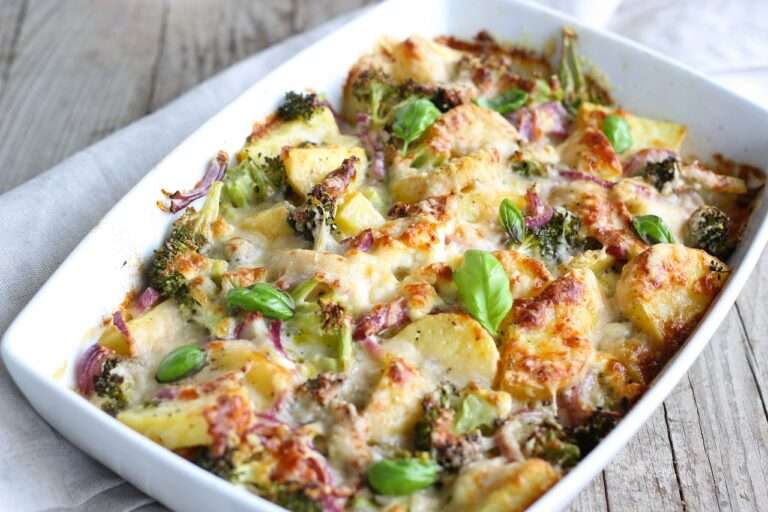Protein in Hummus vs Peanut Butter: Unveiling Nutritional Powerhouses
Last updated on December 4th, 2023
As an Amazon Associate I earn from qualifying purchases.
Hummus and peanut butter stand out as two popular options that have won the hearts and palates of many in the world of nourishing and tasty spreads. These spreads, which are made from a variety of sources, provide a tasty way to include protein in your diet. We’ll go further into the protein composition of hummus and peanut butter in this post, examining their advantages, distinctions, and potential role in your nutritional plans.
When it comes to healthy and delectable spreads, hummus and peanut butter have taken the culinary world by storm. These nutrient-dense foods enhance the flavor of your meals and provide a significant amount of protein, a macronutrient crucial for several biological processes. In order to make educated dietary decisions, let’s examine the protein composition and nutritional profiles of hummus and peanut butter.
UNDERSTANDING PROTEIN
Protein is the basis of all life and is essential for the development, maintenance, and repair of all bodily tissues. It is made up of amino acids that are necessary for several physiological activities. Your diet’s inclusion of items high in protein guarantees top health and wellbeing.
HUMUS’ PROTEIN COMPOSITION
What is Hummus?
Blended chickpeas, tahini (sesame seed paste), olive oil, lemon juice, and garlic are used to make the creamy spread known as hummus. This delicious Mediterranean treat has a silky texture and a flavorful combination that goes well with many different cuisines.
Hummus’ protein content
Hummus provides a reasonable quantity of protein while not being as protein-dense as some other sources. A 100 gram portion of hummus typically has 8 to 10 grams of protein. As a result, it’s a great plant-based protein choice for vegetarians, vegans, and anyone who want to mix up their protein intake.
Other Nutritional Benefits
Hummus provides nutritional fiber, healthy fats, vitamins (including vitamin K and folate), minerals (such iron and magnesium), and protein in addition to other nutrients. This vitamin combination improves bone health, enhances energy generation, and supports digestive health.
PROTEIN AVAILABILITY IN PEANUT BUTTER
What is Peanut Butter?
A popular spread prepared from roasted peanuts, peanut butter sometimes has salt or sweeteners added for flavor. Due to its rich and nutty flavor, it may be used in a variety of sandwiches, snacks, and even savory recipes.
Protein Content in Peanut Butter
Compared to hummus, peanut butter is a more potent source of protein. About 8 grams of protein are normally included in a 2-tablespoon serving of peanut butter. Because of this, it appeals to those who want to increase their protein consumption without ingesting animal products.
Additional Nutritional Advantages
Additionally, peanut butter contains heart-healthy monounsaturated and polyunsaturated fats. It includes vital nutrients including magnesium and phosphorus and is high in vitamin E, a potent antioxidant.
COMPARING PROTEIN QUALITY
Proteins: Complete vs. Incomplete
Although hummus and peanut butter both include protein, their amino acid compositions are different. Chickpeas, which are regarded as an inadequate protein source, are used to make hummus. However, when coupled with nutritious grains like pita bread, it creates a full protein profile. Peanut butter, on the other hand, is a complete protein since it includes all nine necessary amino acids.
Complementary Amino Acids
Consider eating peanut butter with whole wheat bread or hummus with whole grains to maximize your protein intake. This guarantees a balanced intake of amino acids, promoting general health.
PROTEIN FOR BUILDING AND REPAIR OF MUSCLE
Hummus’s Role in Muscle Health
Hummus supports muscular health even though it doesn’t contain as much protein as peanut butter. Its high protein content makes it a beneficial complement to post-workout snacks since it helps with muscle repair and maintenance.
Benefits of Peanut Butter for Muscles
The protein in peanut butter aids in muscle protein synthesis and recuperation. Additionally, its healthy fats provide you long-lasting energy for activity and aid in lowering inflammation brought on by exercise.
DIETARY RESTRICTIONS AND CONSIDERATIONS
Allergies and Sensitivities
Although most people take hummus well, anyone with peanut allergy should avoid peanut butter. For those who are allergic to nuts, sunflower seed butter or almond butter might be great substitutes.
Plant-Based and Omnivorous Diets
Both hummus and peanut butter are excellent sources of protein for plant-based diets. As part of a balanced diet, omnivores may also profit from their nutritional characteristics.
FLAVOUR, VERSATILITY, AND CULINARY USES
Exploring Hummus in Dishes
Hummus makes a delicious sandwich spread, salad dressing, and vegetable dip thanks to its creamy consistency and savory flavor. Its versatility improves a variety of culinary creations.
Peanut Butter Beyond Sandwiches
Peanut butter may be used in smoothies, cereals, sauces, and even savory meals like satay in addition to sandwiches. Its adaptability gives various cuisines a distinctive touch.
WEIGHT MANAGEMENT AND SATIETY
Hummus and Fullness
Hummus is a filling food that assists weight management since its high protein and fiber content makes you feel fuller for longer.
Peanut Butter’s Satiating Effects
The mix of protein, fiber, and good fats in peanut butter also promotes satiety. It may assist in reducing cravings and preventing overeating when included in meals.
MICRONUTRIENT PROFILE
Vitamins and Minerals in Hummus
Numerous micronutrients, such as vitamin K for strong bones, folate for cell division, and iron for oxygen delivery, are present in hummus. These nutrients are crucial for maintaining healthy physiological processes.
Peanut Butter’s Nutrient Spectrum
Peanut butter increases dietary intake of vitamins and minerals, including magnesium and vitamin E, an antioxidant that promotes the health of the skin.
THE HEART HEALTH PERSPECTIVE
Unsaturated Fats in Hummus
Unsaturated fats found in hummus, especially tahini and olive oil, are heart-healthy. These fats save your heart from illness by reducing the level of dangerous cholesterol in your blood.
Heart-Friendly Aspects of Peanut Butter
The monounsaturated and polyunsaturated fats in peanut butter also promote cardiovascular health. They assist in preserving normal blood lipid levels and heart health in general.
THE SUSTAINABILITY ANGLE
Hummus’s Environmental Impact
Compared to sources of protein derived from animals, chickpeas used in hummus production have a less environmental impact. Their ability to fix nitrogen improves the soil and lessens the demand for artificial fertilizers.
Peanut Butter and Sustainability
Compared to certain other nuts, peanuts need less water and resources to grow. Choosing peanut butter with sustainable sourcing will help lessen its negative effects on the environment.
WHICH ONE TO CHOOSE?
Considerations for Different Goals
Your nutritional objectives will determine whether you should choose hummus or peanut butter. If you’re looking for a spread that is high in complete amino acids and protein, peanut butter is a good candidate. Hummus is a fantastic option if you’re looking for a nutrient-dense food with fiber and heart-healthy fats.
Incorporating Both into Your Diet
There are no limitations, so you may investigate a variety of options. You may take advantage of the distinct flavors and nutritional advantages of hummus and peanut butter by include them in your diet. Consider your portion sizes to balance your consumption of macronutrients.
CONCLUSION
Both spreads emerge as protein-packed powerhouses in the competition between hummus and peanut butter, each with distinct nutritional benefits. While peanut butter shines with its full protein profile and heart-healthy fats, hummus stands out for its fibre-rich composition, vitamins, and mineral richness. Depending on your dietary requirements and personal tastes, you may choose from these delicious spreads.
FAQS
1. Can I combine hummus with peanut butter?
Absolutely! Combining them may provide a wide variety of nutrients and flavors for your diet.
2. Which one is better for losing weight?
Due to the protein and fiber in both spreads, they may help with weight control. Portion management is essential, however.
3. Can I cook with hummus and peanut butter?
Yes, both may improve the flavor and nutritional value of a variety of foods, from savory to sweet.
4. Are hummus and peanut butter safe for those with allergies?
If you have a peanut allergy, use hummus or another kind of nut butter.
5. Which is more environmentally friendly?
Hummus and peanut butter made from sustainably harvested sources are both environmentally beneficial options that benefit the environment.
Amazon and the Amazon logo are trademarks of Amazon.com, Inc, or its affiliates.







